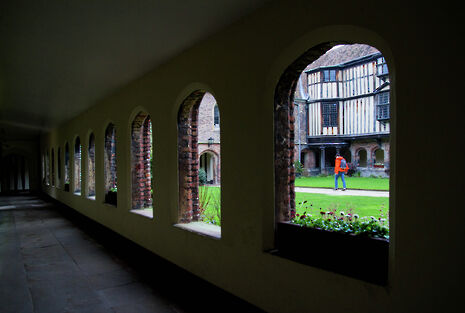Queens’ balloting changes cause outrage
The changes will circumscribe students’ choice of room and prevent many from being able to live with their friends

Students at Queens’ College have expressed their outrage over a change to the room balloting system at the College which has left second-years feeling disadvantaged.
Under the changes, students are no longer permitted to select other people to ballot with, meaning that they cannot be assured of living with their friends. Previously, the students were allowed to ballot in groups of four, six, or eight students.
The new system has caused particular problems for second-years. Queens’ offers second-year students a certain number of walk-through rooms which function as shared sets with an en suite.
Previously, all those who applied to go into shared sets for their second year were placed in a priority group, meaning they came before everyone else in the ballot. This was intended to incentivise students to choose these rooms. Those who did not receive a set were assured of a single room.
As a result of the changes, however, students who apply for a shared set will be obliged to take one, regardless of its type and of who is living around it.
Many students are also unhappy with the arrangement of pairs in the room ballot. In the past, the ballot had operated by giving the pair consecutive numbers. This meant that those who did not receive a shared set could still live near their friend, but now that numbers are allocated to each person at random, they may be hundreds of places apart.
Queens’ students attempting to live with their friends have also faced an additional hurdle since last year. The overall plan of room allocations is only available to view in the room when you choose, and will not be seen by students before they make their choice. No ‘running list’ of room choices made will be made public during the process.
Before last year, the room balloting system was supervised by the JCR. Now, however, a committee comprising the College staff supervises the choosing of the rooms.
The college warned students that any attempt to publicise the room choices generally, or create a map of the choices, would lead to their removal from the room ballot.
The college has said that they do not want to create an environment where there are too many friendship groups living in one area, for fear of creating “ghettos” of rowdiness.
Students have responded, however, that disruption is more commonly caused by students walking across the college to see friends, which will now become a more frequent occurrence.
The changes were introduced last year to encourage greater mixed living between the year groups. In a statement at the time, the college proposed that they would “ensure that no student feels coerced in respect of room choice” as well as “increase choice for all students” and “prevent problems that arise from clusters of students who have a detrimental effect on others”.
Nor are these the only accommodation-related grievances in Queens’ at this time. Rents for each room are decided by the Bursar’s Office in June of every year, meaning that students are not given prices when they are told to sign up for a room. Many students have voiced their worries about the financial implications of the college’s decisions not to provide the figures for their rooms’ rent in advance.
Room layouts are not provided when students sign for rooms. As such, room numbers do not accurately indicate the floor plan, making it even harder to guess where friends may live.
One second-year Queens’ student told Varsity of their fury at the changes. “As a second year who is not sharing this year, I don’t think I can afford to be put into an expensive room next year but I don’t think I have a choice.
“There’s a high chance that I will be completely separated from my friends, as most of them did share and even those that didn’t might be very far away from me in the ballot, which I feel would be very detrimental to my welfare. The fact that college is not giving me a chance to have a voice in any of this make me extremely angry.”
Speaking to Varsity about the changes, Queens’ College JCR said: “We are disappointed in the way that the ballot has turned out for students, and understand it will inevitably be difficult during this transitionary year, but at this point there is not much the JCR can do. We are aware of concerns for welfare around this issue and are working to make student opinion known to College so we can get the best possible outcome for students for this year’s ballot.”
Varsity has contacted Queens’ College for comment
 Interviews / ‘People just walk away’: the sense of exclusion felt by foundation year students19 April 2024
Interviews / ‘People just walk away’: the sense of exclusion felt by foundation year students19 April 2024 News / Controversy on the Cam: John’s spend almost 90 times more on rowing than other colleges19 April 2024
News / Controversy on the Cam: John’s spend almost 90 times more on rowing than other colleges19 April 2024 Theatre / The closest Cambridge comes to a Drama degree 19 April 2024
Theatre / The closest Cambridge comes to a Drama degree 19 April 2024 News / Corpus student left with dirty water for over six months21 April 2024
News / Corpus student left with dirty water for over six months21 April 2024 News / Emmanuel College cuts ties with ‘race-realist’ fellow19 April 2024
News / Emmanuel College cuts ties with ‘race-realist’ fellow19 April 2024





